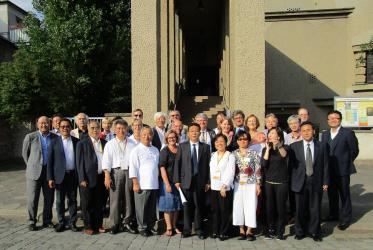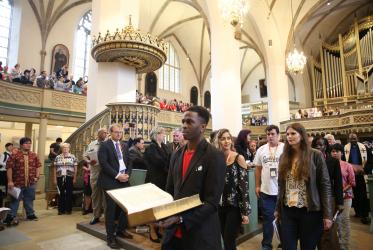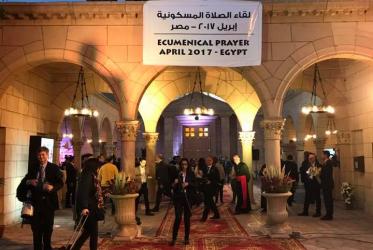Displaying 661 - 680 of 856
A voice for peace from Down Under
10 July 2017
WCC urges end to escalation in Korea
05 July 2017
Ecumenical Patriarch visits WCC
24 April 2017
WCC decries escalation of Syria conflict
07 April 2017
In Lebanon, refugees face hardship - but find hope
16 March 2017
WCC gravely concerned over Israel’s travel ban
09 March 2017
Seven weeks of Lent highlight water crisis in Africa
01 March 2017








